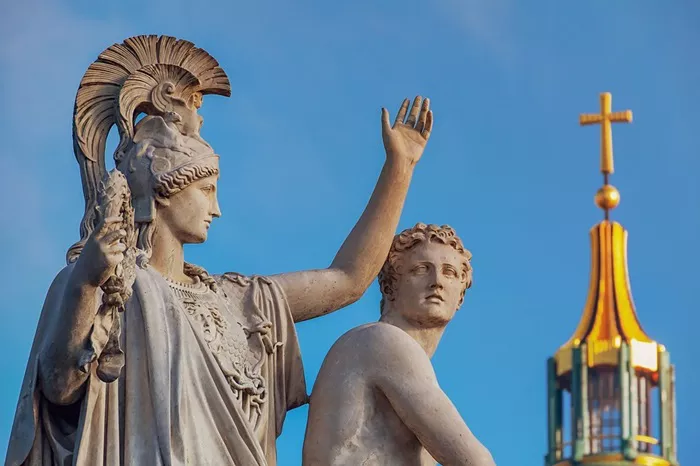Welcome to Poem of the Day – The Theogony by Hesiod.
“The Theogony” is a seminal work of ancient Greek poetry written by the poet Hesiod. This poem is a narrative of the creation of the world and the genealogy of the gods, presenting a systematic account of the origins of the cosmos and divine beings. It provides a mythical explanation for the beginning of everything, from the first primordial entities to the rule of the Olympian gods. Hesiod’s work serves as a foundational text for understanding Greek mythology and the divine order of the universe.
The Theogony Poem Explanation
In “The Theogony,” Hesiod outlines the origin of the gods, starting with the primordial beings such as Chaos, Gaia (Earth), and Eros (Love). These entities gave rise to more gods and creatures, forming the basis of the Greek pantheon. The poem describes the power struggles and relationships between these divine beings, culminating in the reign of the Olympian gods, led by Zeus. Notably, it focuses on the succession myths, where one generation of gods overthrows the previous one, showcasing the theme of cosmic order through divine conflict.
The most significant parts of the poem are the battles between the Titans and the Olympians, which lead to the establishment of Zeus as the supreme god. The Theogony also touches on the roles of other major deities like Hera, Poseidon, and Hades, and the formation of the heavens, seas, and earth. It offers a divine lineage and hierarchy, giving the Greek gods their place in the universe.
Structure and Form
“The Theogony” is composed in the form of epic poetry, written in dactylic hexameter, the traditional meter for Greek epics. This structure lends the poem a formal and rhythmic quality. The poem is divided into several sections, each of which explores different stages in the genealogical history of the gods. These divisions create a logical flow, starting with the creation of the cosmos and progressing through the birth of gods and the cosmic order.
Hesiod also employs a narrative style, telling the stories of gods and their interactions in a chronological manner. This linear structure allows for a clear progression from one event to another, helping the reader understand the succession of divine rule and the unfolding of the mythological world.
Detailed Explanation of Major Elements
Primordial Deities: The poem begins with Chaos, Gaia, and Eros, who represent the fundamental forces that shape the world. Chaos is the void from which everything emerged, Gaia symbolizes the earth, and Eros is the god of love, responsible for bringing harmony to the universe.
Titanomachy: One of the central stories in “The Theogony” is the Titanomachy, the battle between the Titans, led by Cronus, and the Olympians, led by Zeus. Cronus, fearing that his children would overthrow him, swallows each one at birth. However, his youngest son, Zeus, is saved and later leads a rebellion against him, ultimately defeating the Titans and establishing the rule of the Olympians.
Zeus’ Rise to Power: Zeus’ victory over the Titans marks the beginning of a new era. He divides the world with his brothers, Poseidon and Hades, each taking control of a realm. Zeus becomes the king of the gods and establishes order in the universe.
The Creation of Mortal Beings: The poem also explains the creation of mortals, including humans and various other creatures, and their relationship to the gods. Mortals are shown as part of the divine plan, with their fate often influenced by the gods’ actions.
Conclusion
“The Theogony” provides a rich tapestry of mythological stories that explain the origins of the gods and the universe in Greek thought. Through its detailed genealogical accounts, Hesiod offers an insight into the divine structure and hierarchy, emphasizing the importance of order and justice in the cosmos. The poem’s influence on Greek mythology is immense, and its themes of divine succession and the cosmic struggle for power resonate throughout later works of literature. Ultimately, “The Theogony” is not just a creation myth but a reflection on the nature of divine power and the balance of the universe.

